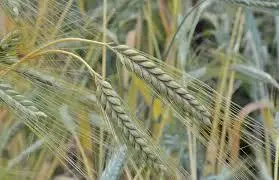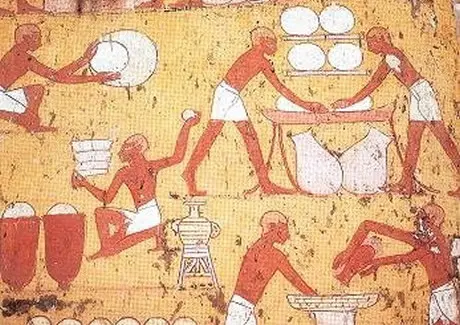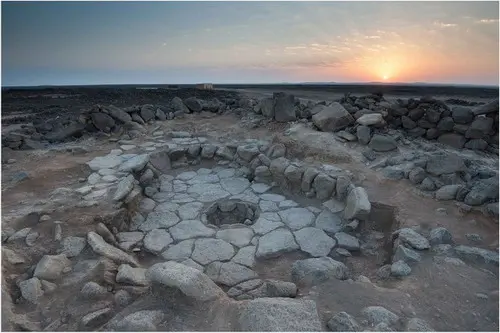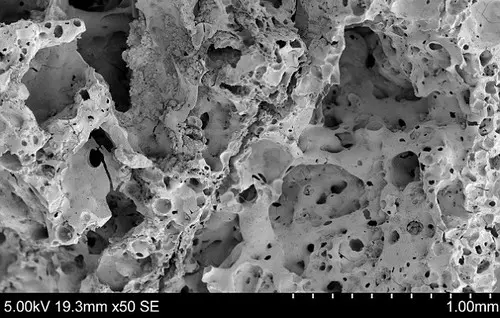This site uses only a few technical cookies necessary for its operation. By continuing to browse, you accept their use.
To find out more...
To find out more...
The first breads of humanity?

I have already told you in a previous article the beautiful story of the croissants, but do you know what it is about the bread, who "invented" it, where and when?
Well, you can imagine that recent discoveries, in 2018, have profoundly changed the history of bread.
Well, you can imagine that recent discoveries, in 2018, have profoundly changed the history of bread.
15 K 5/5 (14 reviews)
Keywords for this post:HistoryBreadPrehistoryExcavationsExplorationLast modified on: February 16th 2019
The first breads of humanity?
Until recently I had, and maybe you do too, the story of the Egyptians (-4000 BC), who used to eat mainly some kind of pancakes, made with a cereal porridge and then cooked in the oven. One day, according to the legend, a cake was forgotten, fermented and leavened, and instead of throwing it away, they decided to cook it anyway. Surprise, it was better than the patties. Bread had just been invented.
I love these beautiful stories or legends, easy to remember and always well timed. How they have survived the centuries? Mystery, but they are there.
So, the bread is the Egyptians, around 4000 BC? Not so simple... One could say that for bread to be invented, agriculture had to be invented, and in particular the cultivation of cereals?
But agriculture began around 11,000 years ago in the Fertile Crescent, an area that straddles Iraq, Turkey, Jordan, Israel, Egypt and Iran of today.
These seeds were crushed between 2 stones or in mortars, then roasted and eaten. Long before the Natufians, around the Lake of Tiberias in Israel, traces of a fireplace with wild barley and roasted starch were found in a cave dating back to 22,000 years ago.
What about bread?
The Natufians at one time settled in the Wadi rum, the black desert of Jordan, at the time fertile and watered.
In this desert, on the excavation site of Shubayqa 1, we found a hearth, in the center of the photo, not yet an oven, with remains of cooking, burned, which have crossed the millennia.
Many questions remain unanswered after this extraordinary discovery, and in particular if the fact that the bread has little leavened is a choice of the Natoufians or an emergency of the time (we had to leave, and quickly)? Which, by the way, makes a beautiful parallel with the flight of the Hebrews from Egypt and unleavened bread, millennia later.
From all this, I think we should remember several things:
If you want to know more about it, I invite you to listen to the episode of Jean Claude Ameisen's fascinating program on France-Inter "Sur les épaules de Darwin" (On Darwin's shoulders) dedicated to the history of bread, only in french.

I love these beautiful stories or legends, easy to remember and always well timed. How they have survived the centuries? Mystery, but they are there.
So, the bread is the Egyptians, around 4000 BC? Not so simple... One could say that for bread to be invented, agriculture had to be invented, and in particular the cultivation of cereals?
But agriculture began around 11,000 years ago in the Fertile Crescent, an area that straddles Iraq, Turkey, Jordan, Israel, Egypt and Iran of today.


These seeds were crushed between 2 stones or in mortars, then roasted and eaten. Long before the Natufians, around the Lake of Tiberias in Israel, traces of a fireplace with wild barley and roasted starch were found in a cave dating back to 22,000 years ago.
What about bread?
The Natufians at one time settled in the Wadi rum, the black desert of Jordan, at the time fertile and watered.

In this desert, on the excavation site of Shubayqa 1, we found a hearth, in the center of the photo, not yet an oven, with remains of cooking, burned, which have crossed the millennia.

Many questions remain unanswered after this extraordinary discovery, and in particular if the fact that the bread has little leavened is a choice of the Natoufians or an emergency of the time (we had to leave, and quickly)? Which, by the way, makes a beautiful parallel with the flight of the Hebrews from Egypt and unleavened bread, millennia later.
From all this, I think we should remember several things:
- Baking preceded agriculture, and not the other way around, in other words, the first men did not wait to cultivate cereals to make bread, they first baked, and only then did they plant and harvest cereals, thousands of years later.
- The first bakers in the history of mankind were therefore probably Natufians, in present-day Jordan.
- Bread is a food that has accompanied humans since the dawn of time, it is the source of life and evolution of our species, we must never forget it.
If you want to know more about it, I invite you to listen to the episode of Jean Claude Ameisen's fascinating program on France-Inter "Sur les épaules de Darwin" (On Darwin's shoulders) dedicated to the history of bread, only in french.
Lasts posts
XO Cognac Explained: Meaning, Aging, and Flavor Profile
XO Cognac always goes beyond the labels on the bottle: it is often associated with tradition and quality. You get to appreciate the artistry, character and ageing process when you understand what defines this smooth Cognac. The section below tackles everything about XO Cognac, from complex flavour...January 28th 2026472 Sponsored article
Butter vs. grease
We often read in a recipe where a pastry is put into a mould that, just before pouring, the mould should be buttered or greased. But what's the difference between these 2 terms?December 1st 20252,4195
Getting out of the fridge early
Very often when you're cooking, you need to take food or preparations out of the fridge, to use them in the recipe in progress. There's nothing tricky about this: you just take them out of the fridge and use them, usually immediately, in the recipe. But is this really a good method?November 24th 20251,5935
Who's making the croissants?
When you look at a bakery from the outside, you naturally think that in the bakery, the bakers make the bread, and in the laboratory, the pastry chefs make the cakes. It's very often like that, with each of these professions having quite different ways of working, but sometimes there's also one...November 23th 20251,439
Oven height
When we put a dish or cake in the oven, we naturally tend to put it on the middle shelf, and that's what we usually do. But in some cases, this position and height can be a little tricky, so let's find out why.October 8th 20254,6165
Other pages you may also like
Should a sausage be pricked before cooking?
If you are using sausages in a recipe, you may have already asked yourself the question: Should you prick it before cooking it, or not? You will certainly find as many opinions "you should prick" as "you should not". Let's try to untangle all this.September 29th 201848 K4.1
The golden-brown finish on puff pastry
Let's take a look at the tricky matter of producing puff pastry with an attractive, golden-brown finish. French pastry chefs call this "dorure" (literally, "gilding"). Behind this quirky term there lurks a real problem (and the solution): when using puff pastry (pâte feuilletée) for a pie, or...February 8th 201848 K 24.6
Coarsely chopped herbs
Although we are in the middle of winter as I write these lines, you should not hesitate to make salads at this time, it is actually quite simple, rather fast, and so pleasant. A while ago, I already told you that a salad is a salad, but a salad with herbs is immediately something much better:...January 9th 202115 K4.9
The infinite variety of salads
Making a salad for a meal, a few ingredients of your choice and a sauce to bind it all together is still one of the best ways to cook something really good quickly and simply. And since there is often a "fresh" aspect with the vegetables in the ingredients, not only does it taste good, but it's...March 13th 202110 K4.6
How to properly roll out a pie crust?
Very often in pastry making, you have to roll out a pastry before using it for a pie or another dessert. At home, of course, you get out your rolling pin and simply roll it out. Is there a way to get an evenly rolled out dough? That's what we will see in this article.May 10th 202311 K4.9
Post a comment or question
Follow this page
If you are interested in this page, you can "follow" it, by entering your email address here. You will then receive a notification immediately each time the page is modified or a new comment is added. Please note that you will need to confirm this following.
Note: We'll never share your e-mail address with anyone else.
Alternatively: you can subscribe to the mailing list of cooling-ez.com , you will receive a e-mail for each new recipe published on the site.









